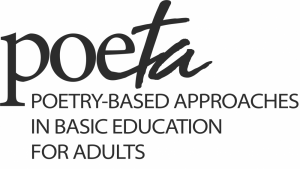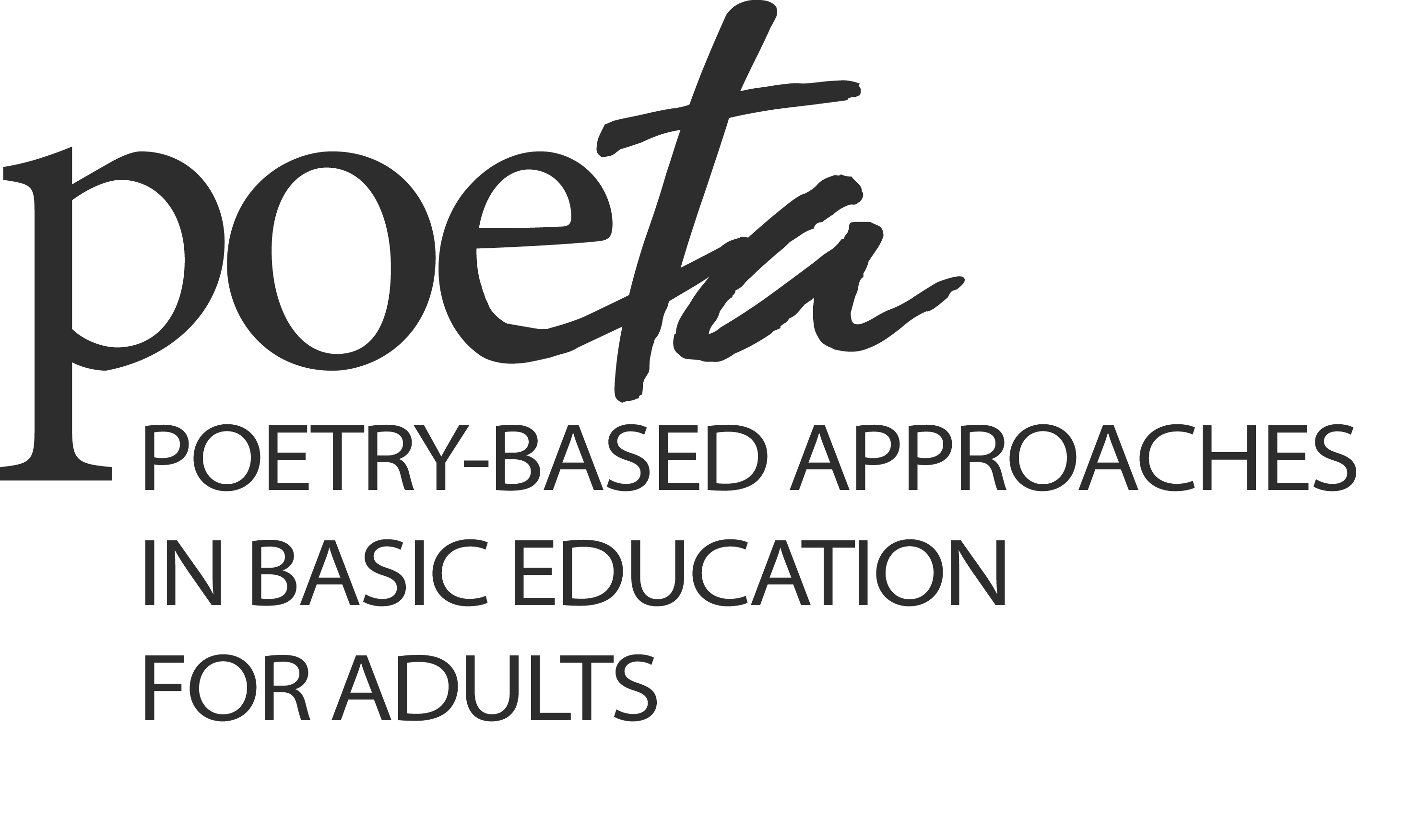 According to the European Declaration of the Right to Literacy, published by the European Literacy Policy Network (ELINET) in 2016, nearly 55 million adults in Europe lack basic literacy skills, leading to an increased poverty risk, social exclusion and limited possibilities of civil and cultural participation, lower chances for lifelong learning and personal development.
According to the European Declaration of the Right to Literacy, published by the European Literacy Policy Network (ELINET) in 2016, nearly 55 million adults in Europe lack basic literacy skills, leading to an increased poverty risk, social exclusion and limited possibilities of civil and cultural participation, lower chances for lifelong learning and personal development.
Poetry, as a cultural universal and form of communication existing in all countries and among all cultures, can be a particularly interesting means of strengthening the communicative
abilities of adults learning to read and write and opening up space for individual growth.
The project “Poetry-based Approach in basic education for Adults” (POETA) aims to contribute to the self-development and empowerment of people being “on the way to the written word” (as opposed to the common term “functional illiterates”), including first- and second language learners.
The approach is intended to offer a complementary or an alternative to traditional concepts of literacy and basic education, which are focused on the integration of people into economic processes and argue in a deficit-oriented manner.
In cooperation with culturally diverse European partners, an innovative and holistic concept for working with poetic texts in basic education, presented in an e-book, is to be developed, explored and integrated into teacher training via MOOC.
The project aims to develop various creative approaches such as:
- Intergenerational approaches
- Digital storytelling
- Music- and art-based approaches
- Neuroandragogical approaches.
Teachers, trainers, course leaders, planners and learner organisations in basic education will benefit from the knowledge and material created by the project. Subsequently, learners in Call 2020 Round 1 KA2 – Cooperation for innovation and the exchange of good practices KA204 – Strategic Partnerships for adult education
Form ID: KA204-043E2D90 Deadline (Brussels Time) 2020-04-23 12:00:00 EN 2 / 153 adult education programs such as newcomers, elderly people, second chance school attendees and migrants are to be reached by the poetry-pedagogical approach.
On a regional, national and systemic level, the project’s general aim is to make a valuable contribution to the increase in literacy, to raise public awareness of the issue and to initiate a general change in attitudes towards the needs and resources of learners.
During the 31 months run of the project, the consortium will organise five transnational meetings of all partners, which will be hosted alternately in their countries and cities of location.
A short-termed Learning, Teaching and Training Activity bringing all partners together serves the purpose of sharing and further developing the participating teachers’ expertise with regard to existing experience in poetry education work, in specific approaches or in working with specific target groups.
At the end of the project, every partner will hold a Multiplier Event in his respective country, reaching out to relevant regional, national or international stakeholders. The main intention is the initiation of a professional discourse of this innovative concept and to disseminate it, but also to broaden this innovative approach and transfer it into good practice.
We expect two high quality intellectual outputs: A MOOC for trainers and teachers and a poetry-pedagogical concept to be published in e-book for adult education practice, policy and research and interested professional audience. These two products will be developed in a participatory process by all partners. They contribute their existing expertise with regard to specific target groups or approaches in terms of content or creativity, but also jointly develop new expertise and competences. The project process will be designed in such a way that these multicultural, multinational, but also multidisciplinary competences will result in a participatory process that values diversity and leads to a new holistic, transcultural understanding and concept in andragogy. The e-book will be made available free of charge to all interested parties beyond the project period and contribute to the establishment of resource-oriented approaches in basic education for adults.
Another decisive factor is the intention to have the English e-book / concept translated into the three native languages of the participating organisations – German, Spanish and Greek.
The ambiguity of meanings, from which poetry lives like no other literary genre, can be resolved differently in the respective mother tongues.
